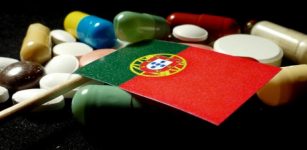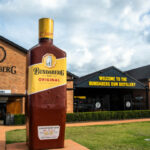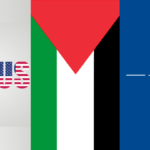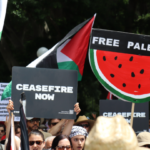Decriminalisation and a Regulated Drug Supply Market are the Key to Success

The Portugal model of drug decriminalisation is acknowledged globally as a resounding success. In 2001, the Portuguese government decriminalised the personal use and possession of all illegal drugs. Since then, rates of HIV infections and overdoses have dramatically decreased.
And despite what detractors predicted, drug use did not skyrocket after decriminalisation.
A lesser known fact is that Costa Rica also decriminalised the possession of all drugs for personal use in 1988. But in this Central American country, problems associated with drugs are still prevalent. There’s been a spike in drug-related violence since 2010, and prisons are overflowing.
However, experts are of the view that Costa Rica’s continuing issues are more to do with the supply side of the illicit drug trade, than personal use.
The Global Commission on Drug Policy report, released in June 2011, found that the criminalisation of drugs across the globe has not only led to an increase in drug consumption, but has also contributed to a growth in the criminal black market, along with the violence associated with it.
So while Portugal suggests that decriminalisation brings great benefits, the Costa Rican experience is that it may not be enough on its own. And if a legalised and regulated drug market isn’t established, then supply is left in the dangerous hands of organised crime.
Portugal’s success
At the end of the 1990s, around 1 percent of the Portuguese population were dependent on heroin. The nation also had the highest number of drug-related AIDS deaths in the European Union.
The “severe and worsening drug problem” in Portugal led to “a national conversation in the parliament and community,” Dr Alex Wodak, president of the Australian Drug Law Reform Foundation recounts. In turn, a committee developed a national policy, which was implemented by the government.
The report produced by the committee was based on “prevention treatment, harm reduction and social reinsertion.” A key recommendation was that the quality and capacity of the nation’s drug treatment programs had to be improved.
“Problematic drug use then began to decline, with a fall in crime,” Dr Wodak told Sydney Criminal Lawyers®.
The country’s current drug-induced death rate sits at three per million residents: five times lower than the European average. And by 2014, drug-related HIV infections had dropped to 40, compared with 1,016 thirteen years prior.
The doctor added that “when governments changed after elections, they have retained the policy.” And although, many government programs were cut due to the severity of the 2008 global financial crisis, “the drug programs, which are considered a success,” remained.
The dissuasion panels
Today in Portugal, if a law enforcement officer finds an individual in possession of what is considered a 10-day supply of an illicit drug or less, they’re not arrested. Rather, they’re sent to what’s called a Commission for the Dissuasion of Drug Addiction panel.
The panel can recommend a fine, or if a person has appeared before them on a number of occasions, they can prescribe treatment. However, 81 percent of people who appear before the panel receive no penalty whatsoever.
The problems in Costa Rica
According to Dr Wodak, “Costa Rica’s drug problems stem from its position on a narrow isthmus connecting drug supplier countries in South America with huge drug demand in the USA.” Similar issues can be found in all the other Central American nations.
The homicide rate in Costa Rica increased by 30 percent from 2013 to 2014. This problem is due to the “conflict between the authorities and drug traffickers, and between rival gangs of drug traffickers,” Dr Wodak explained.
“Colombians often trade directly with Mexicans in Costa Rica,” he continued. “It’s hard to know what Costa Rica could do given this situation.”
In recent years, Costa Rica’s murder rate has been pushed past 10 per 100,000 residents, which the World Health Organisation classes as “pandemic.” In other countries in the region, like El Salvador, Guatemala and Honduras, the rates are even higher.
The need for change in Costa Rica
A recent VICE report outlined that as Costa Rican police aren’t equipped to deal with large drug suppliers, they’re targeting small-time dealers in poor areas, and this situation is leading to a prison system that is 50 percent overcrowded.
As for the possession of illicit drugs for personal use, as already mentioned, since 1988, it’s been decriminalised. In 2004, the nation’s drug policy was further amended, to drop fines for personal possession.
But drug treatment programs don’t seem to be adequate. If police find an individual in possession of drugs, they offer voluntary drug treatment. This is run by one government organisation, and usually requires a patient to stay at the centre during the treatment.
In order to deal with all these issues, harm reduction experts are calling for the establishment of a legalised and regulated drug market in Costa Rica.
Leaving the supply side illegal
Dr Wodak remarked that many of the problems still attributed to drugs in Portugal “are really problems resulting from the black market supply.” However, there are several reasons why the country hasn’t taken the next step, and established a regulated drug market.
These include, “scarce resources, more urgent priorities, waiting for the 2001 reforms to be strongly embedded and a general satisfaction with the current situation,” the doctor said.
As for issues faced in areas of the world where possession is decriminalised, but the supply side is not, the doctor pointed to “the brazen openness of drug trafficking in public areas” and the often violent “conflict between rival drug trafficking groups.”
He added that, “Drug trafficking inevitably corrupts law enforcement and the criminal justice system, and sometimes the judiciary, political system and erodes major civic institutions.”
An Australian regulated drug market
In late March, Australia 21 released its latest report on drugs, which made a number of key recommendations aiming to decriminalise drugs use in this country. One of the thirteen recommendations was to start a process of replacing the black market with a regulated one.
What’s so significant about this call for a gradual move towards the establishment of a legalised and regulated market, is that eleven of the think tank’s experts were former senior law enforcement and law officials, including ex-police commissioners and heads of corrective services.
The participants of the Australia 21 roundtable are not the only prominent members of the community calling for regulated markets. NSW Greens MLC Dr Mehreen Faruqi has suggested following the example of certain US states and establishing a regulated recreational cannabis market.
Greg Denham, the Australian representative for the US-based agency Law Enforcement Against Prohibition (LEAP), has suggest a regulated market for all illicit substances. MDMA would be available in pharmacies, while harder drugs could be accessed via an application process with a GP.
Curbing illegal traffickers
In the case of Costa Rica, it’s hard to believe that legalising drugs would actually stop the violence associated with traffickers running the substances through their country on the way to the US.
But, if a nation like Australia set up a legalised and regulated drug market, while other parts of the world continued to keep them illegal, would there still be an issue with international organised drug traffickers impinging on the local scene?
Well, as far as Dr Wodak is concerned, there wouldn’t be. “I doubt that this would be a significant problem in a country which has an entire continent to itself, and has no land borders with any other country,” he concluded.







